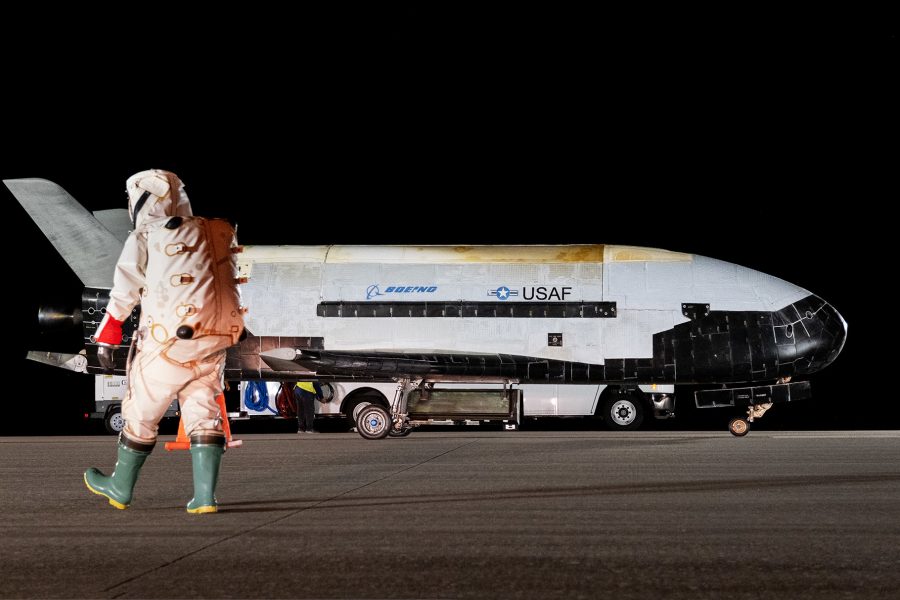The Space Force will send its X-37B space place back into orbit this weekend. But no one is saying when it’s due back.
A SpaceX Falcon Heavy rocket is slated to lift off Dec. 10 from the Kennedy Space Center in Florida, powering the X-37B into space for the seventh time, but its first aboard SpaceX’s more powerful Falcon Heavy. The launch, part of the National Security Space Launch (NSSL) program, will involve tests for “operating in new orbital regimes,” Space Systems Command disclosed in a release.
The X-37 has operated in low-Earth orbit in the past, some 110-500 miles above the ground, but Falcon Heavy can deliver payloads of 58,860 pounds—far more than the X-37B—to geosynchronous orbit, more than 22,000 miles up.
The secretive, uncrewed orbital test vehicle, built by Boeing, can carry multiple payloads to demonstrate new technologies. This mission will focus on “space domain awareness technologies,” according to the Space Force. It will also help NASA investigate the effects of long-term radiation on plant seeds, “paving the way for future crewed space missions.”
“The X-37B continues to equip the United States with the knowledge to enhance current and future space operations,” Chief of Space Operations Gen. B. Chance Saltzman said in a statement. “X-37B Mission 7 demonstrates the USSF’s commitment to innovation and defining the art-of-the-possible in the space domain.”
With each successive mission, X-37B has spent longer and longer in orbit. Its last flight lasted 908 days, from May 17, 2020, to Nov. 12, 2022. Previous missions lasted:
- 780 days—Sept. 7, 2017, to Oct. 27, 2019
- 718 days—May 20, 2015, to May 7, 2017
- 674 days—Dec. 11, 2012, to Oct. 17 2014
- 468 days—March 5, 2011, to June 16, 2012
- 224 days—April 22, 2010, to Dec. 3, 2010
Should the trend of extended missions continue, X-37B wouldn’t land until June 2026 or later. It is unclear how many more flights the space plane can endure. In 2020, when Saltzman was still a three-star lieutenant general, he hinted that the spacecraft might be nearing its end. The X-37B, he said then, might exemplify “technology that has served its purpose and [maybe] it’s time to start looking at the next available capability.”
